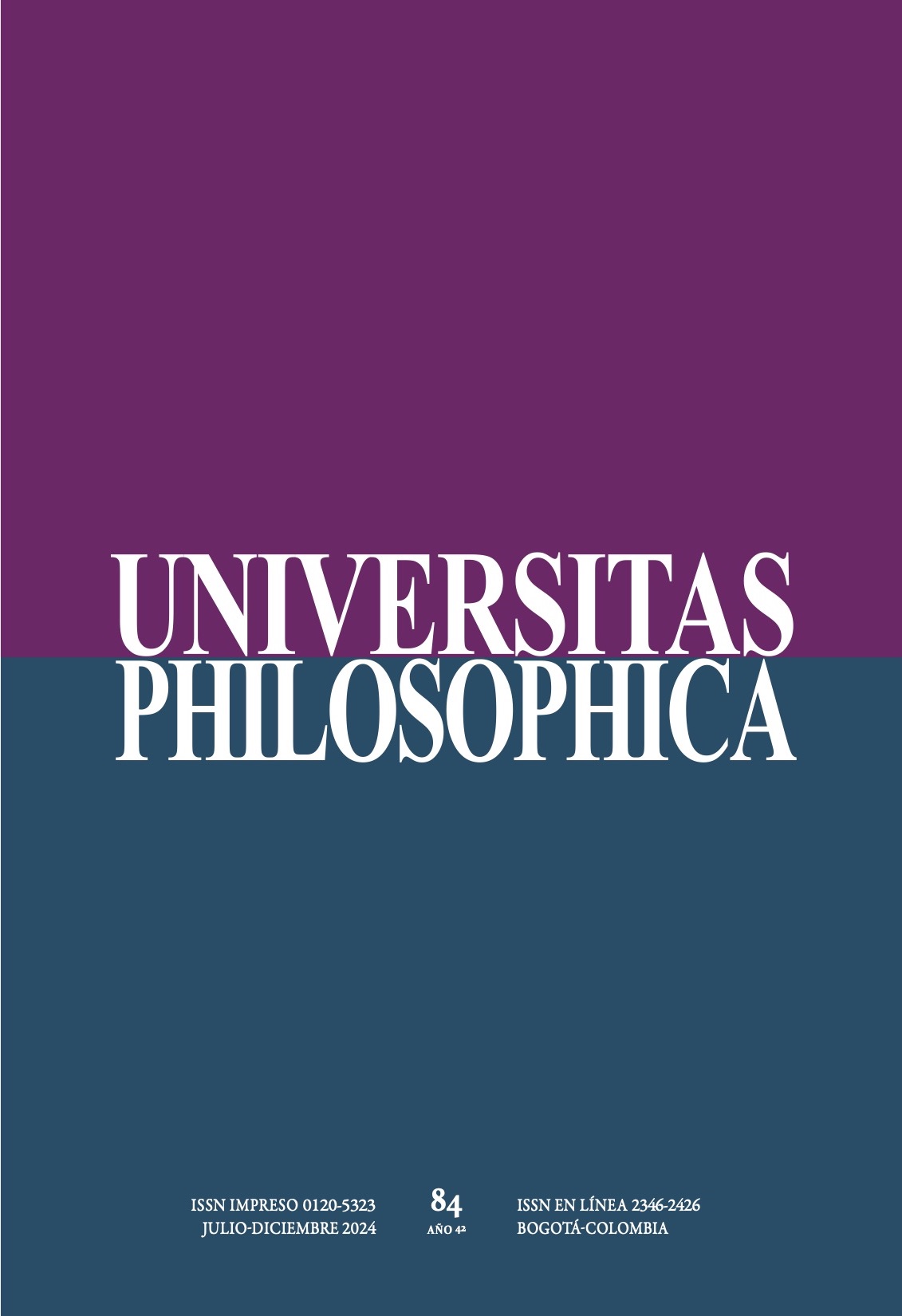Abstract
The subject of this article is Chaos according to Hesiod. Its objective is to analyze the multiple meanings of Chaos in order to propose a solid understanding of this key notion in the Theogony. The postulate that it seeks to validate is that Chaos can be associated with formless and disordered matter. In fact, there are good reasons to assimilate Chaos to indeterminate matter. The most central one has to do with the etymological root of Chaos: a yawning or opening between the Earth and the sky. Furthermore, it can be reasonably assumed that Hesiod could not go beyond a material beginning for the cosmos. To defend this thesis, the opposite approach is examined and criticized: the one that separates the idea of an amorphous materiality from Chaos.
Aristóteles (1995). Física (G. R. de Echandía, trad.). Editorial Gredos.
Aristóteles (2014). Metafísica (T. Calvo Martínez, trad.). Editorial Gredos.
Bussanich, J. (1983). A Theoretical Interpretation of Hesiod’s Chaos. Classical Philology, 78(3), 212-219.
Cornford, F. M. (1952/1988). Principium sapientiae. Los orígenes del pensamiento filosófico griego (R. Guardiola Iranzo y F. Giménez Gracia, trads.). Visor. (Obra original publicada en 1952).
Dewan, L. (2009). Lecciones de Metafísica (C. R. Domínguez y L. B. Irizar, trads.). Fondo de Publicaciones Universidad Sergio Arboleda.
Griffith, J. (2022). The Anarchy of Justice: Hesiod’s Chaos, Anaximander’s Apeiron, and Geometric Thought. Kilikya Journal of Philosophy, 1, 1-16. https://doi.org/10.5840/kilikya2022911
Guthrie, W. (2010). Los filósofos griegos (F. M. Torner, trad.). Fondo de Cultura Económica.
Hesiod. (1966). Theogony (M. L. West, trad. y ed.). Oxford University Press.
Hesíodo. (1978). Obras y fragmentos (A. Pérez Giménez y A. Martínez Díez, trad.). Editorial Gredos.
Hesiod. (1988). Theogony and Works and Days (M. L. West, trad.). Oxford University Press.
Jaeger, W. (1952). La teología de los primeros filósofos griegos (J. Gaos, trad.). Fondo de Cultura Económica.
Kirk, C. S., Raven, J. E. & Schofield, M. (1957/1994). Los filósofos presocráticos. Historia crítica con selección de textos (2ª ed.). Editorial Gredos.
Pérez Giménez, A & Martínez Díez, A. (1978). Introducción a la Teogonía. En Hesíodo. Obras y fragmentos (A. Pérez Giménez y A. Martínez Díez, trads.) (pp. 63-68). Editorial Gredos.
Ramos Jurado, E. Á. (1979). Los filósofos griegos y Hesíodo (I). Habis, 10-11, 17-38.
Solmsen, F. (1950). Chaos and “Apeiron”. Studi italiani di filologia classica, 24(3-4), 235-248.
The Editors of Encyclopaedia Britannica (28 de julio de 2019). Chaos. En Encyclopedia Britannica. https://www.britannica.com/topic/Chaos-ancient-Greek-religion.
Theodossiou, E., Kalachanis, K., Manimanis, B. N., & Dimitrijevic, M. S. (2012). The Notion of Chaos: From the Cosmogonical Chaos of Ancient Greek Philosophical Thought to the Chaos Theory of Modern Physics. Facta Universitatis, 11(2), 211-221.
Vernant, J.-P. (1999). El universo, los dioses, los hombres. El relato de los mitos griegos (J. Jorda, trad.). Editorial Anagrama.
Vergados, A. (2021). Chaos and Order in Hesiod’s Theogony. Antiquorum Philosophia. An International Journal, 15, 27-40. https://doi.org/10.19272/202130201002
West, M. L. (1966). Prolegomena and Commentary. In Hesiod. Theogony (M. L. West, trad. and ed.). Oxford University Press.
West, M. L. (1988) Introduction and Notes. In Hesiod. Theogony and Works and Days (M. L. West, trad. and ed.). Oxford University Press.
Zallo, J. A. (2021). Un nuevo enfoque sobre la Teogonía de Hesíodo. Revista de Estudios Clásicos, 50, 105-146.

This work is licensed under a Creative Commons Attribution 4.0 International License.
Copyright (c) 2025 Diego Fernando Barrios Andrade



